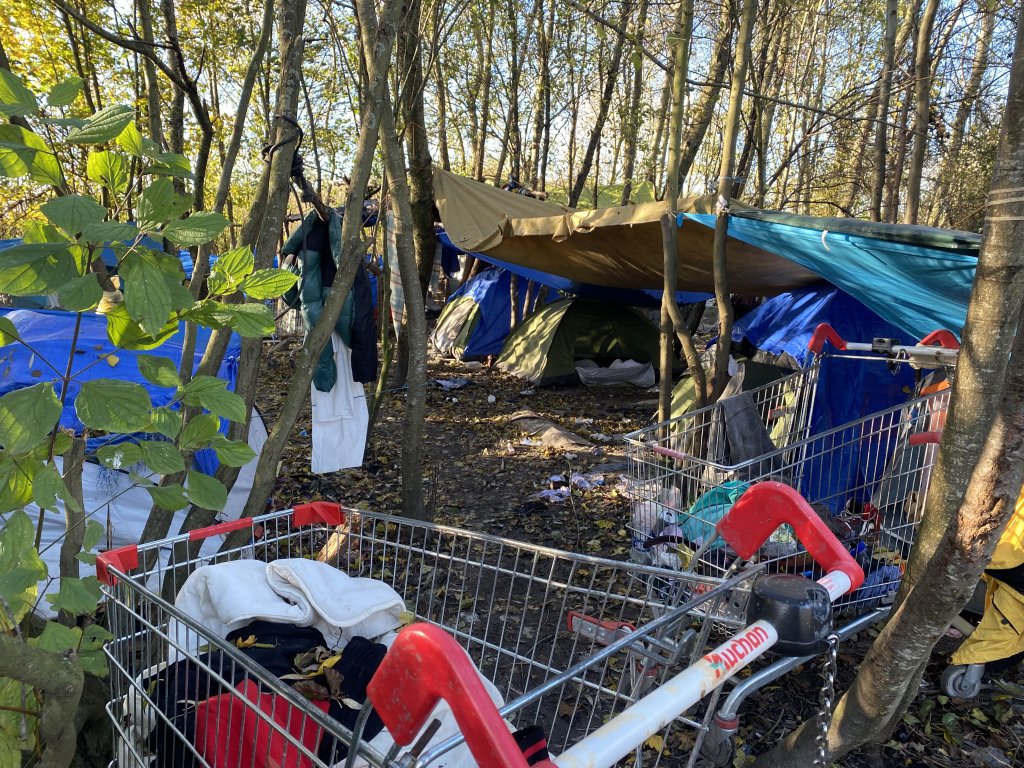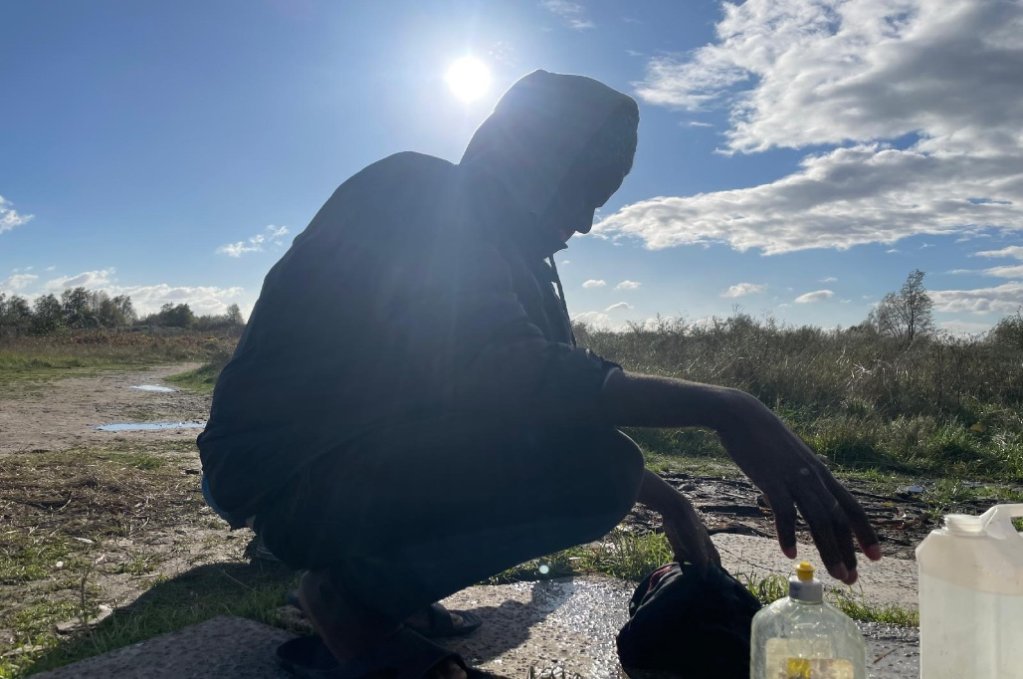In a report published this week on the refugee situation in Calais, the UNHCR states that a large proportion of migrants in the city would be eligible for international protection in France. However, few apply -- according to the agency, simply due to a lack of access to information.
In a report published on Monday, January 27, the United Nations High Commissioner for Refugees (UNHCR) looks at the administrative isolation of hundreds of migrants on the northern coast of France, in Calais. While more than 85 people died in 2024 during the Channel crossings and on the northern coast, the UNHCR conducted a survey on access to information regarding asylum procedures.
More than three migrants out of four interviewed in Calais by the UN did not apply for asylum in France. However, "the results of this survey show that a majority of these people come from countries in conflict. This confirms that a large number of people could potentially obtain international protection," the report states. Migrants surveyed came from Sudan (40 percent), Eritrea (14 percent), Syria (9 percent), Egypt (5 percent), Iraq (5 percent), Iran (4 percent), Somalia (3 percent). States where war is raging or are ruled by authoritarian regimes.
NGOs are trying to compensate for this lack of access to information, such as the "access to the rights bus", which offers migrants in Calais free legal information, especially regarding asylum, the Dublin regulation or residence permits. But it is one of the only existing associative schemes and few people show up. Over the 2023-2024 academic year, the bus team only received 495 people.
Read AlsoYoung Yemeni migrant found dead on Calais beach
Few people leave their country because of the economic situation
Contrary to popular belief, the UNHCR survey also reveals that "generalized violence" and "risks of political, ethnic, or religious persecution" are the primary reasons for migration (56 percent). In contrast, only 15 percent cited economic hardship as their main reason for leaving their home country.

To improve the lives of migrants in Calais, "it would be particularly important to strengthen access to legal, administrative, and logistical support services, making it easier in practice to file an asylum application," the UN agency advises.
However, the report also notes that most migrants in Calais are not interested in seeking asylum in France, even if access to information were improved. Instead, they prefer to apply for international protection in the United Kingdom—mainly because they already speak English, have family there, or believe there are better job opportunities.
Read AlsoSyrian migrant dies during Channel crossing attempt
Freshly arrived to France
For aid organizations working on the ground, harsh living conditions also play a major role. "Migrants don’t feel valued. You’ve seen how the French state treats them when they arrive in Calais. They don’t want to stay in a country that is so unwelcoming—where they lack access to basic needs and rights and face constant police harassment," said Flore Judet of Auberge des Migrants.

Many migrants in Calais have only recently arrived in France: 54 percent of those surveyed by UNHCR had been in the country for less than two months. Unfamiliar with their surroundings, their focus remains solely on crossing the Channel.
For many, the UK represents a last hope after failing to rebuild their lives elsewhere in Europe. Some have faced deportation threats, while others have been stuck in the administrative limbo of EU migration policies. Migrants interviewed along France’s northern coast often express disappointment with a European Union they had expected to be more welcoming. With Brexit, however, the UK has come to symbolize stability—one of the few places where they believe they won’t be sent back to Europe.
In 2024, nearly 37,000 people successfully reached the UK by crossing the Channel—an increase of 25 percent from 2023.
Read AlsoJumping onto trucks in Calais, the last resort for migrants without money
86 percent of respondents are homeless
Unsurprisingly, the report highlights the dire living conditions of migrants: 86 percent of those surveyed by UNHCR are homeless. Those who do have shelter stay in emergency reception centers or with local residents, but only temporarily.
Migrants living in camps in Calais, Grande-Synthe, Dunkirk, and elsewhere are forced to hide in forests, far from city centers and NGOs. Despite this, many essential needs—such as access to drinking water and food distributions—are met through aid organizations, according to the report.
But what about shelter in the harsh winter? Two weeks ago, authorities in Pas-de-Calais and Nord launched the Grand Froid Plan to provide emergency housing for people living on the streets. While some migrants spent the night in shelters opened by the prefectures, others still slept outside in the snow—once again due to a lack of access to information on available accommodations.
